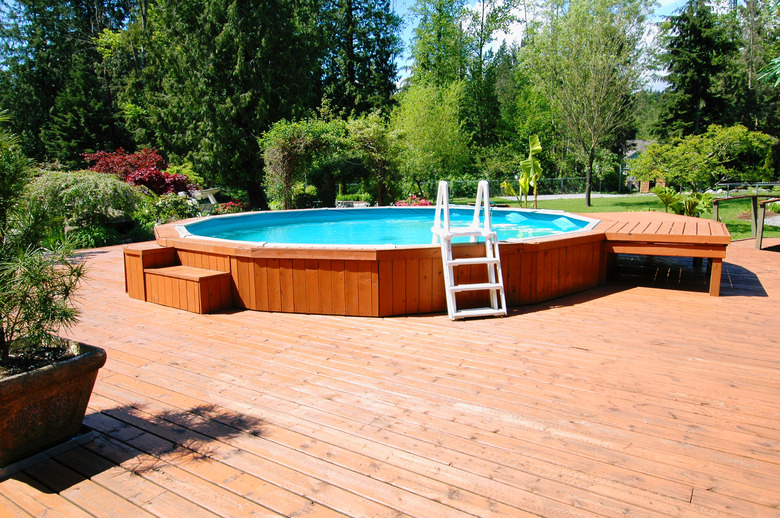Can I Use An Extension Cord For An Above-Ground Pool?
Can you use an extension cord to power your above-ground pool? The answer is a resounding no, despite what countless websites will tell you. Water and electricity are a dangerous and potentially deadly combination. Running an above-ground pool pump on an extension cord is not only a bad idea — it's also quite likely an illegal one.
Why It's a Bad Idea
First and foremost, you need to know that running an extension cord to your pool is illegal almost everywhere. Electrical and building codes simply don't allow it. Codes often seem arbitrary and unnecessarily strict, but they exist to keep you, your family, and pool guests safe. If you ignore those rules, the city may come and close your pool along with charging you hefty fines.
Running an extension cord can also create a tripping hazard in your yard, and you certainly don't want to mow over it by accident. And you can't just lift the cord off the ground and hang it over your pool. If a cord breaks and falls into your pool, someone could get seriously hurt — or worse.
Another reason to avoid extension cords is that they can cause your pool pump motor to overheat and die. If it does, you're probably on your own. Hooking up your pump to an extension cord usually voids the warranty. Even if your pump doesn't overheat, moving too much power through the extension cord can cause it to melt or catch fire.
Doing It Right: The Basics
When wiring your pool pump, you'll first need to decide if you want to do the work yourself or hire a licensed electrician. An overview of the process can help you decide. When wiring in a pool pump, you'll need to bond the pool and the water to the pump with a solid copper wire and code-approved connectors.
Your next task is to install an electrical receptacle (outlet) within 3 feet of the pool pump so you can plug in the pump cord. This outlet must be contained within an in-use weatherproof box and have a shut-off switch. The pool pump must have a grounded twist-and-lock plug, which it probably came with from the factory. A convenience receptacle (on a separate circuit) may also be required.
All outlets must be GFCI-protected. It's best to provide GFCI protection at the breaker, since this simplifies the circuit installation. It's also recommended — and may be required — that you use a dedicated circuit for the pump outlet, to ensure adequate power and minimize the risk of circuit overload. With the exception of the pool pump power cord, the electrical wires for this project must be run underground in an electrical conduit, such as PVC conduit or rigid metal conduit.
The local building authority undoubtedly will require a permit for this installation. This means the work must be approved by a city inspector. If you're familiar with home wiring projects, you may opt to tackle the pool wiring by yourself, provided this is allowed in your area. Otherwise, it's best to call in a licensed electrician for the job. Even if you normally excel at DIY projects, electricity can be a tricky thing to work with. There is no shame in playing it safe and calling in a pro.
Tip
Remember to have the local utility companies mark any underground wires or pipes before you start digging trenches for wires. Call 8-1-1, the national "Call Before You Dig" hotline (or visit call811.com), to begin the process. It's also smart to verify the exact location of your septic system and any other underground utilities.
Doing It Right: Electrical Code
If you're doing the work yourself, it's absolutely crucial to make sure your installation meets the local code requirements. These can vary depending on where you live, but there are a few basic requirements that typically apply. In most cases, the outlet for the pump power cord cannot be more than 3 feet away from the side of the pool. In municipalities that require a convenience outlet, it typically must be located between 6 and 20 feet from the pool.
When wiring an above-ground pool, you must use a 12-gauge wire at a minimum. The bare copper bonding wire must be 8 gauge or larger. The conduit through which this wire runs is to be buried between 6 and 24 inches deep, depending on the type of conduit you use and where GFCI protection begins in the circuit.
These general guidelines can get you started, but they in no way represent a comprehensive list of code requirements or wiring instructions. For that, you'll need to consult your local building authority, which you can do when you apply for the required electrical permits you need to wire your pool.
